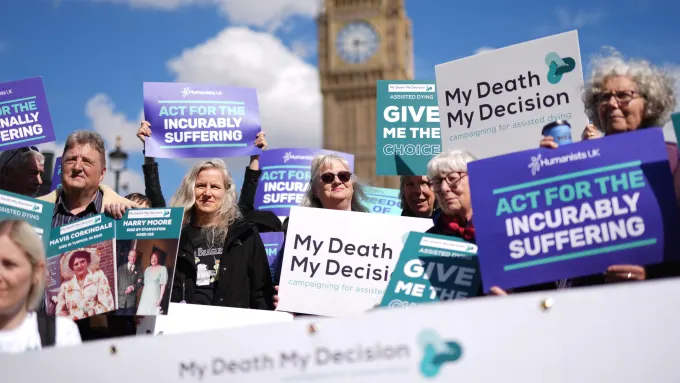Updated: UK Death Bill

The UK Parliament is set to vote on a highly contentious issue: whether to legalize assisted dying. This proposal would allow terminally ill individuals with fewer than six months to live to end their lives with medical assistance. The bill has sparked intense debate, dividing lawmakers and prompting concerns about the potential consequences.
If passed, the bill would permit individuals who meet specific criteria to request assistance in ending their lives. Two doctors and a High Court judge would need to approve the request. This legislation would bring the UK in line with countries like Canada, New Zealand, and Spain, which have already legalized assisted dying in some form.
Proponents of the bill argue that it would provide dignity and relief to terminally ill patients, reducing their suffering and the pressure on palliative care services. Esther Rantzen, a prominent supporter of assisted dying, has shared her personal experience with terminal cancer, emphasizing the need for this legislation. Rantzen has become a standard-bearer for the campaign, using her platform to raise awareness and advocate for change.
However, opponents have raised concerns about the bill’s safeguards, the potential for patients to feel pressured into ending their lives, and the impact on the already-strained National Health Service (NHS). Some have also argued that the bill has been rushed, without adequate time for consideration or a thorough impact assessment.
The debate has been marked by emotional and personal testimonies from lawmakers on both sides of the issue. Some have shared their own experiences with terminal illness, either personally or through family members, while others have expressed concerns about the potential consequences of the bill.
The vote is expected to be extremely close, with many lawmakers still undecided. Prime Minister Keir Starmer has allowed a free vote, permitting MPs to vote according to their conscience without fear of political repercussions. This decision has been seen as a nod to the deeply personal and complex nature of the issue.
As the debate continues, it is clear that the outcome of the vote will have significant implications for the future of assisted dying in the UK. If passed, the bill would mark a major shift in the country’s approach to end-of-life care, providing terminally ill patients with a new option for managing their suffering.
However, if the bill is rejected, it is likely that the issue will continue to be debated and discussed in the years to come. The campaign for assisted dying has gained significant momentum in recent years, with many arguing that it is a matter of compassion, dignity, and human rights.
Ultimately, the decision on assisted dying will depend on the individual consciences of lawmakers. As they prepare to cast their votes, they will be weighing the complex moral, ethical, and practical implications of this deeply personal and contentious issue.






